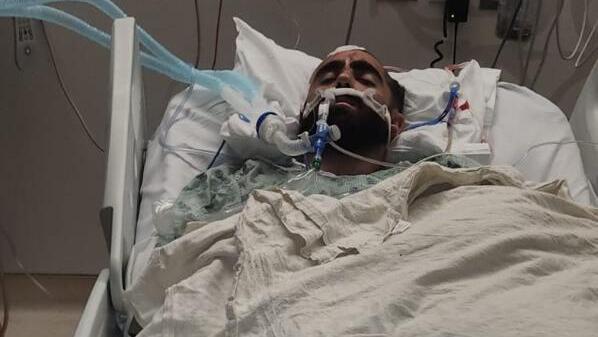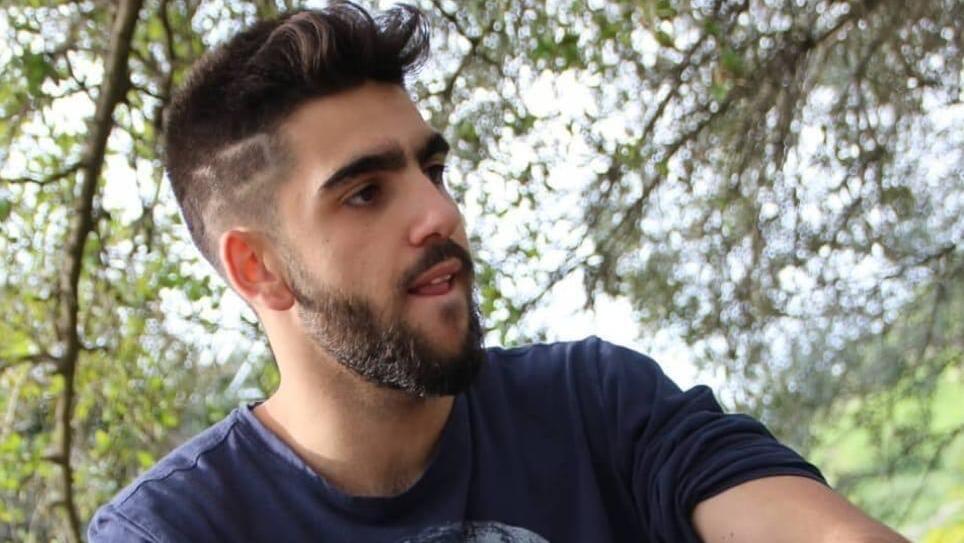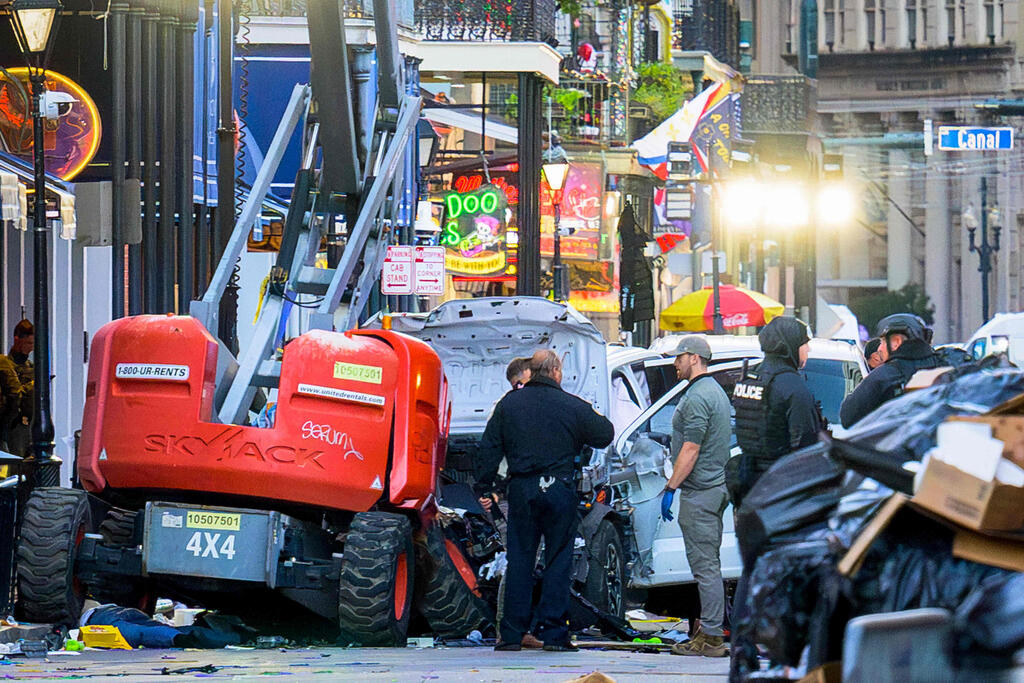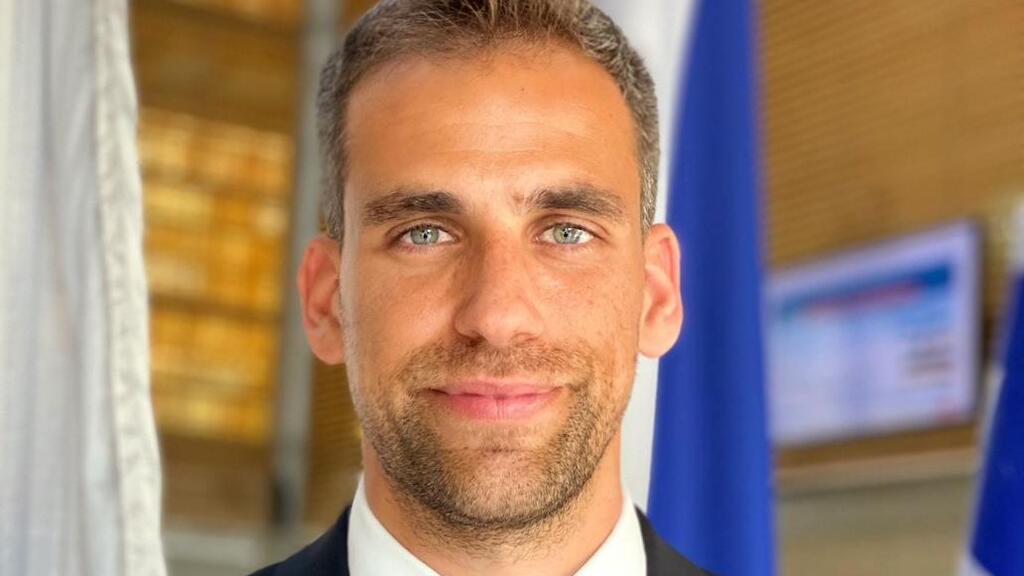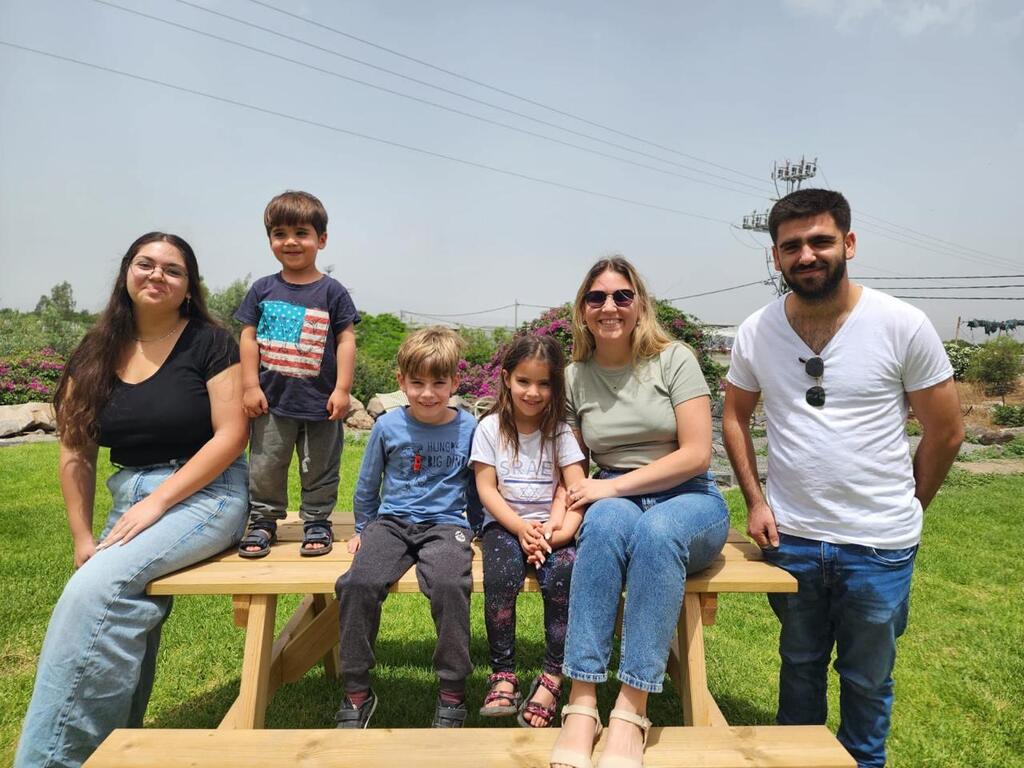Adi Levin, one of two Israeli nationals injured in the New Year’s Eve ramming and shooting attack in New Orleans, remains bedridden in a downtown hospital due to severe head injuries.
Levin experiences frequent lapses in concentration, falling into deep sleep every few minutes. However, on Thursday night, he briefly opened his eyes and surprised his father, Hagai, with a question: "How did he do?"
It took Hagai a moment to process the question, but as an avid NBA fan, he quickly realized his son was asking about the Portland Trail Blazers' game against the New Orleans Pelicans, featuring Israeli player Deni Avdija.
“New Orleans is a mediocre team, so we talked about the game and their poor performance. It was a nice morning chat, and then he drifted back into a deep sleep,” the father recounted from his son’s hospital room.
Hagai offered a glimpse into Adi’s condition: “His state fluctuates, but I’m optimistic. I’ll bring my son home. His life will change—he’ll have metal rods in his arms and legs, an open head wound and part of his skull is missing. There are still injuries we’ll fully understand only in a month when we begin the head rehabilitation process. But he’ll return to us, and for that, we’re moving our home from the Golan Heights to Tel Aviv to be closer to Tel HaShomer hospital.”
In another building of the hospital complex lies Y., Adi’s travel companion and friend from their mandatory service in the IDF Armored Corps, with whom he also served in the reserves.
Due to concerns over the wave of arrest threats targeting IDF soldiers worldwide and potential lone "troublemakers" who might target Israelis, Y. has chosen to remain anonymous.
Despite being bedridden, he communicates with his family and jokes with friends back in Israel. "I miss everyone terribly and am deeply grateful to the Jewish community here for their support," he said.
Adi and Y. embarked on their "big road trip," as they called it, after completing two reserve duty tours in Gaza and another in Lebanon. "They were already being told about a fourth tour, so they decided to take advantage of the time and fulfill what Adi had dreamed of doing for years," Adi's father recounted.
"The plan was a three-month road trip by car. Adi wanted to follow in his father’s footsteps because I took the same trip when I was young. They started in Nebraska with my brother, rented a car, and drove west to Los Angeles, then to Texas, and onto New Orleans for Christmas. From there, they planned to continue to Florida."
On New Year’s Eve, they parked near their hotel and wandered into the city's main street to soak in the bustling atmosphere, parties, pubs and amateur cover bands for which New Orleans is famous. They mingled with tourists and locals, enjoying the night. But around 3 a.m., everything changed.
"A car coming from the opposite direction hit Adi head-on, crushing his legs and head, dragging him along the road, and pushing his friend to the side," his father recounted after reviewing the security camera footage.
Hours later, Y.'s parents received a phone call from the hospital: "He was hysterical but was also worried about Adi because he didn’t know where he was."
Get the Ynetnews app on your smartphone: Google Play: https://bit.ly/4eJ37pE | Apple App Store: https://bit.ly/3ZL7iNv
Adi was listed as missing until local Chabad staff found him at a hospital, identifying him through his credit card details. The rabbi contacted his father, and the family rushed to take a flight spanning more than 20 hours via Europe to the U.S.
Since then, they have remained by his bedside, supported by the Foreign Ministry, led by Israeli Consul General to the Southwestern United States Elad Shoshan, and the local Jewish community, which rented them an apartment near the hospital.
"Without this support, I don’t know how we would have coped with this situation," said Hagai. "We didn’t even know where the kids’ belongings were. Adi’s phone and passport are still missing, and the hotel initially refused to give us their things until the FBI intervened and explained who we were.
"The hospital here operates at an incredible standard. We are receiving exceptional care, but despite their travel insurance, a single day of hospitalization here costs roughly the equivalent of the entire annual budget of Israel’s healthcare system combined. The expenses will exceed a million dollars.
“Local authorities have said they will help cover some of the costs, but so far, these are just promises. We are facing a long recovery ahead. He’s spent two weeks in the emergency room and will need several months in rehabilitation with complex surgeries. We won’t return to Israel before April."
The family is now requesting that Adi and his friend be recognized as victims of a terror attack to fund their continued treatment and facilitate their return to Israel. "The law clearly states that an Israeli injured in such an event abroad is entitled to comprehensive support, and I expect the State of Israel to take responsibility and help us get these kids back on their feet," Adi's father said.
"They are good citizens who gave the best years of their lives to the country, went through tough experiences, and are among our finest. I don’t say this just because he’s my son. He went to the U.S. to unwind, not to take risks, not to go bungee jumping or do something reckless. I expect a call from the Foreign Ministry and the National Insurance Institute to step in and assist.
"I also served my country as a soldier. We are good, regular people without enormous financial means. And here, we are dealing with a Muslim extremist, a jihadist. It doesn’t matter whether he received direct orders from ISIS or just acted out of inspiration—he did what he did, and now we have shattered children. We want them home. The state knows how to support its people properly, especially those like these boys who gave four years of their lives. That’s my expectation.
"All our plans have changed. His older sister was supposed to get married, but now the family is planning to relocate to Tel Aviv, where there isn’t a Chabad center to help us with meals. So we are now launching a campaign to prepare for what lies ahead. We have one mission: to bring our boys home."
Consul General Shoshan said that while the conditions of the injured have improved and there is significant optimism, “we all know the road to recovery will be slow, long and difficult.”
Shoshan noted that the attack in New Orleans did not occur in isolation. "Since October 7, we have seen anti-Jewish and anti-Israel protests across the U.S. escalate into demonstrations against America and the Western world. The rhetoric of a 'global intifada' has grown more extreme, words turned into actions and those actions evolved into acts of terror targeting innocent people—precisely like the attack in New Orleans," he said.
"The assailant didn’t necessarily aim to harm only Israelis but attacked indiscriminately, targeting anyone in his path. The year 2025 began with a chilling reminder of the consequences of terror. This is a wake-up call for the Western world to act decisively against it. From our experience in Israel, terror doesn’t disappear—it only escalates. We must stand firm against it and fight relentlessly. There is no alternative but to completely eradicate it from our lives.”



